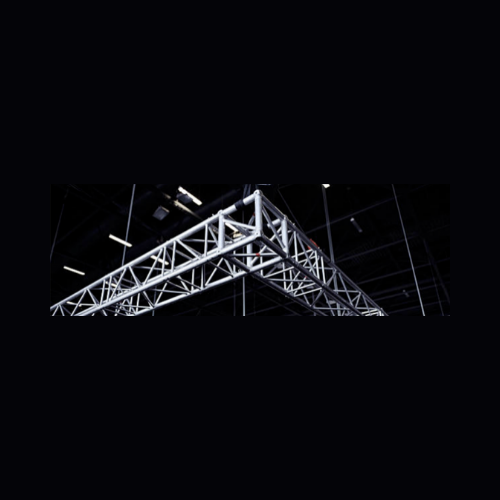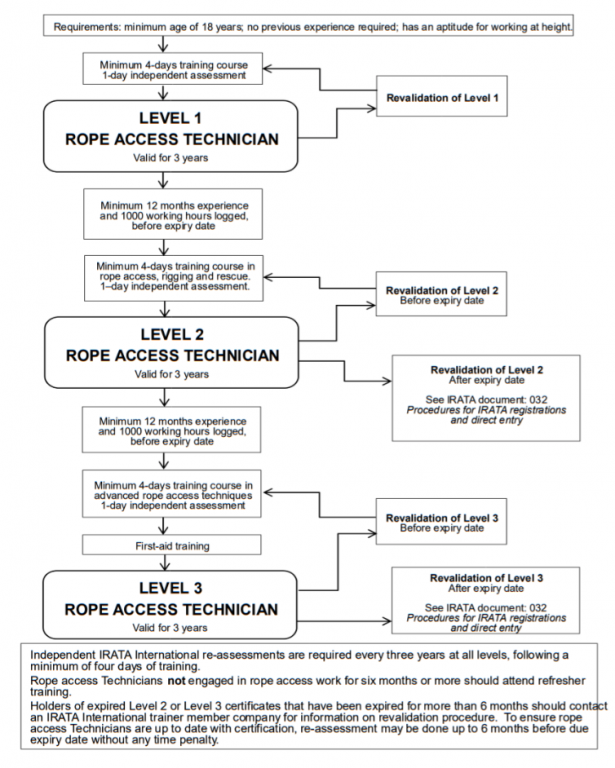
We offer training to all three IRATA and SPRAT levels. Certification is attained by passing a written and practical evaluation by an IRATA Assessor and SPRAT evaluator who is independent of our training company. This course includes fall arrest user and inspection training, and also provides self rescue and assisted rescue training.
About Us: RIG (Rigging International Group):
Rigging International Group (RIG) is Las Vegas Nevada’s premier rope access service and training provider. We specialize in on and offshore rope access solutions for clients in need of the utmost in professionalism and quality code standards. All of our technicians are IRATA and SPRAT certified as well as certified in their given trades and crafts.
RIG was created out of client necessity to provide rope access services to industries that demand a higher standard of management and operation procedures. We offer a vast range of industrial experience and a dedicated program to safety, quality and production.
We partner with our clients to provide a safe and cost effective approach no matter how large or small your project is. Our goal at RIG is to satisfy your needs in any work at heights scenario where general means of access is not possible. From offshore oil platforms in Alaska’s Cook Inlet to refineries in Louisiana, you can count on RIG to get the job done safe, efficiently and cost effectively.
IRATA/SPRAT CERTIFICATION PROGRAMS:
Length: 4 days of training followed by 1-day IRATA assessment and/or 1-day SPRAT evaluation. Dual certification candidates must attend both days of testing.
Cost:
$1600 SPRAT Certification
$1700 IRATA Certification
$1900 IRATA/SPRAT Dual Certification
Rope access is a tested method of work which is recognized globally for its safety and effectiveness. Rope access is utilized across many industries – oil and gas, power generation, entertainment rigging, and construction.
The Industrial Rope Access Trade Association (IRATA) and the Society of Professional Rope Access Technicians (SPRAT) are internationally recognized standards for rope access work. Certification is attained by completing a 4-day course, then passing a written test and practical evaluation administered by an independent evaluator on day 5. The practical assessment is pass/ fail. We will spend much of our time climbing and practicing techniques on rope. We will also cover theoretical material and equipment specifications. Some coursework needs to be completed in the evenings, requiring 1-2 additional hours per day.
RIG instructors are experienced rope access and rescue professionals who are dedicated to the highest standards of safety. Our company performs incredibly challenging projects at height, in a variety of industries. We train to be able to meet the demands of the most rigorous work conditions and environments.
Candidates must be suitable for rope access work, which requires a good level of fitness, a head for heights and an aptitude for ropes and related systems. Medical contraindications include, but are not limited to: heart disease, high blood pressure, epilepsy, blackouts, fear of heights, vertigo, impaired limb function, alcohol or drug abuse, psychiatric illness, and diabetes. A medical evaluation by a doctor is recommended prior to the start of the course. The systems and equipment used limit user weight to 310 lbs.
Prior to certification, all candidates must meet the following minimum requirements:
Candidates who are renewing at their current level must bring their logbooks. Candidates upgrading to L2 or L3 must present logbooks documenting the required experience at their current level. IRATA up-grade requirements are shown in the flowchart below, SPRAT upgrade requirements can be found in the SPRAT Certification Requirements.

Rope access Technicians who are upgrading or revalidating shall provide their logbooks to the IRATA International trainer member company at the start of the training course. Where rope accessTechnicians have lost their logbooks, they shall arrange for a replacement to be issued, completed and verified before assessment. Candidates who are not competent at their existing level may require additional training. As little time is available on upgrade courses for refresher training, pre-course evaluation is recommended. Expired and direct entry candidates must meet additional requirements and should contact a training company to discuss their situation.
EQUIPMENT AND ATTIRE
All the climbing equipment will be provided. Personal equipment, including helmets, is only permitted if you have traceability and inspection records for them. Appropriate clothing for climbing in a harness is advised. The following are general recommendations:
The material being covered during our four days of training can be found on
www.irata.org
IRATA International Code of Practice (ICOP)
IRATA Training, Assessment and Certification Scheme (TACS)
www.sprat.org
SPRAT Safe Practices
SPRAT Certification Requirements
We look forward to training with you!
FALL ARREST RESCUE:
Length: 2 day
Cost: $800
DESCRIPTION:
OSHA requires that “the employer shall provide for the prompt rescue of employees in the event of a fall or shall assure that employees are able to rescue themselves.” This course includes instruction and practical exercises in self rescue and assisted rescue, using a variety of techniques and equipment. We recommend this training for designated rescue teams, and also for any personnel working in remote or otherwise complicated locations, where rescue services would not be able to access in a timely manner.
TOPICS COVERED:
Length: 2 days
Cost: TBD (Offered through Red Rock Guides)
Designed for recreational climbers, cavers and canyoneers with knowledge and experience at an intermediate level. Climbing ability is not the gauge, but rather familiarity with systems, equipment and techniques. We will not be covering basic belay or rappel techniques, how to tie a knot, attach to an anchor, etc. Please get in touch if you are unsure whether you have the appropriate knowledge base. We hope to encourage you to sign up, and we can arrange a short refresher of basic skills at the Red Rock Climbing Center, or at our facility. We feel that the material covered in this course is essential for everyone who ties into a rope, and will greatly improve your ability to stay safe out there.
We will look at some of the more common causes of climbing accidents, and how to avoid them. We will also practice techniques that can allow climbers to get themselves or a partner out of a predicament.
We will focus on techniques and methods that use equipment the climber probably already carries on their harness. Please bring the following gear and mark your carabiners:
Safety is paramount on all our courses. The training location will be thoroughly assessed for hazards and managed by experienced professionals. And students will always be attached by a secondary safety line when practicing at height. Please ensure your equipment is in good condition.
CONFINED SPACE ENTRANT, ATTENDANT, SUPERVISOR, AND RESCUER TRAINING:
Length: 3 days
Cost: $1000
Description:
A hands on course covering topics related to confined space work and rescue applications. The target audience is teams that perform work or rescue services in confined spaces. The focus will be on best work practices that allow safe access to permit required spaces. Simulated entries and rescues from IDLH-type atmospheres that require the use of supplied air respirators will also be included. Our facility is designed to simulate a variety of situations, so that teams are able to practice the most difficult scenarios.
TOPICS COVERED INCLUDE:
Length: 3 daysCost: $1000
This course covers personal protective equipment (PPE) for professional workers at height. We will emphasize proper selection, inspection, and management of a variety of equipment. This course is intended for end users, and those responsible for PPE inspection and management.
For More Information: Click Here
© 2021 TheatreArtLife. All rights reserved.